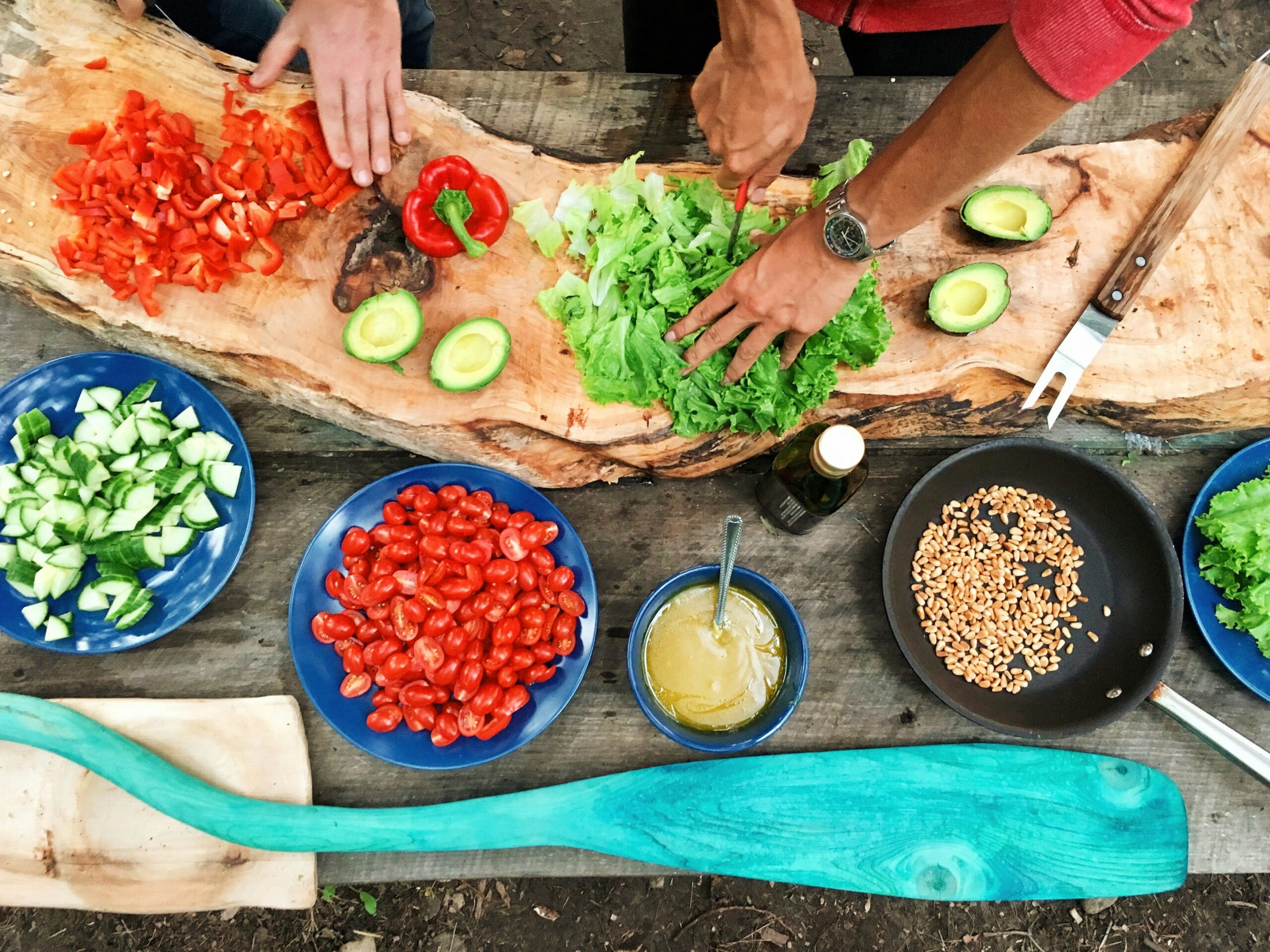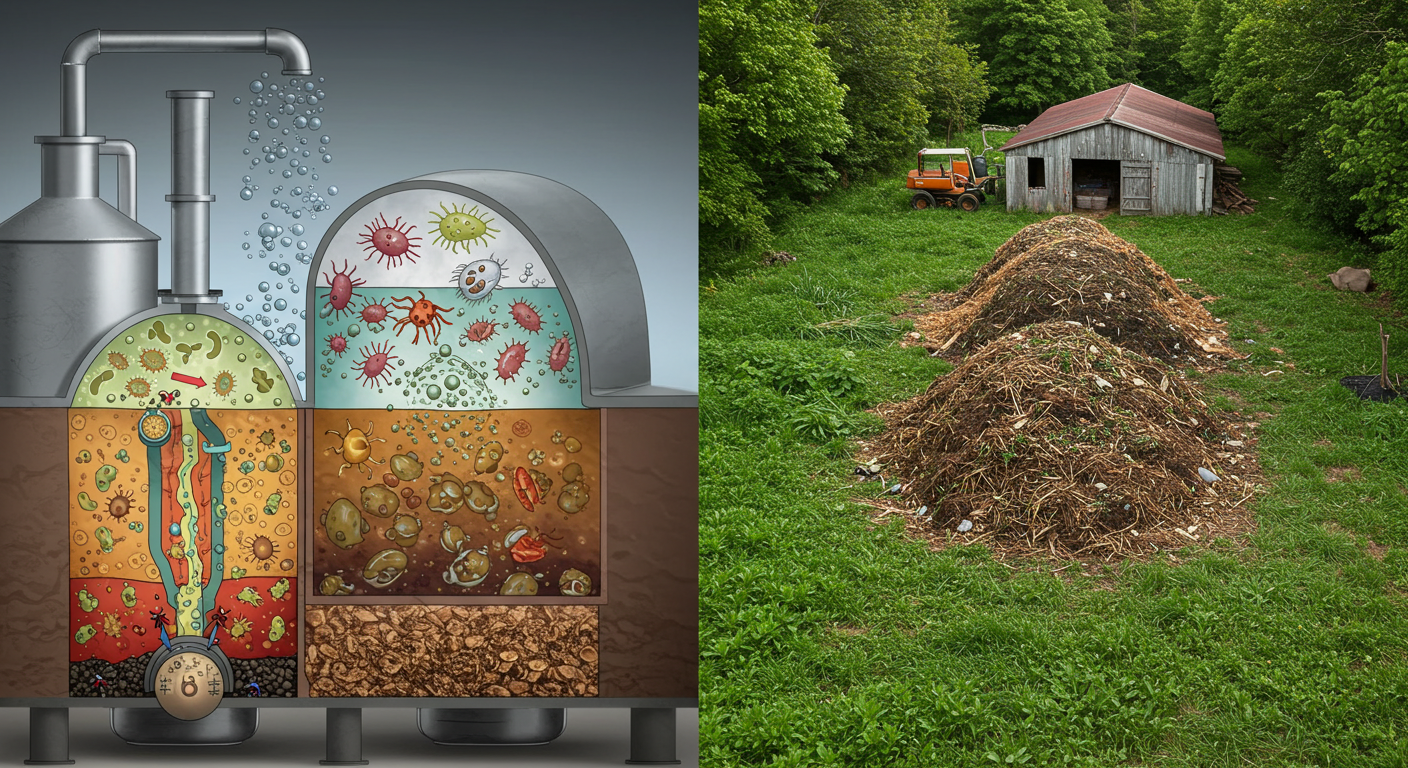Introduction to Virtual Cooking Classes
In recent years, virtual cooking classes have gained significant traction, especially amid the global pandemic that prompted many individuals to seek new hobbies and ways to connect with others. As basic cooking skills became more essential for households adjusting to lockdowns and social distancing measures, online culinary workshops emerged as a solution to bridge the gap between chefs and food enthusiasts. These classes not only nurture the art of cooking but also foster a sense of community among participants, even when they are physically apart.
Farm businesses have recognized the potential of virtual cooking classes as a unique opportunity to engage with customers while showcasing fresh produce. By offering these classes, farms can cultivate a direct relationship with their audience, delivering an interactive and educational experience that emphasizes the value of farm-to-table dining. Participants have the chance to learn new recipes and cooking techniques, all while utilizing ingredients sourced directly from local farms. This not only promotes sustainable food practices but also educates consumers about the quality and craftsmanship behind their food.
Moreover, virtual cooking classes offer the flexibility and convenience that modern consumers seek. They can join sessions from the comfort of their homes, fitting these enriching experiences into their busy schedules. Farmers can leverage various digital platforms to run these classes, ensuring that anyone interested can participate, regardless of geographical constraints. Through webinars or live-streamed events, chefs can demonstrate recipes in real-time, engaging participants to ask questions and share their cooking progress.
As we delve deeper into the concept of virtual cooking classes, it becomes evident that these interactive culinary experiences represent not only an innovative marketing approach for farm businesses but also a meaningful way to reconnect with customers in a rapidly changing world. By harnessing the power of technology, farms can effectively foster community, promote their produce, and inspire a renewed appreciation for local and fresh ingredients.
Benefits of Hosting Virtual Cooking Classes
Hosting virtual cooking classes presents a multitude of benefits for both farming businesses and their customers. One of the most significant advantages is the enhancement of customer loyalty. By offering unique and engaging culinary experiences, farms can create lasting relationships with their customers. When individuals attend these classes, they develop a deeper connection to the produce being used, as well as the producers themselves. This personal engagement can lead to repeat purchases and foster a sense of brand loyalty that traditional marketing strategies may not achieve.
Moreover, virtual cooking classes serve as a powerful promotional tool for farm produce. By showcasing the ingredients sourced from the farm, such as vegetables and herbs, these classes can highlight the quality and freshness of the produce. This not only educates customers about the benefits of using fresh ingredients but also encourages them to purchase directly from the farm, thereby supporting local agriculture. The visual appeal of cooking demonstrations can effectively illustrate the versatility and flavor of farm-fresh products, making them more attractive to consumers.
Another significant benefit is the ability to reach a wider audience. Virtual classes eliminate geographical barriers, enabling farms to connect with customers from various locations. This expanded reach allows them to tap into new markets and demographics that may not have been aware of the farm’s offerings. Additionally, the accessibility of online platforms encourages participation from individuals who may not have the opportunity to attend in-person events due to time constraints or mobility issues.
Finally, virtual cooking classes foster a sense of community among participants. As customers interact with each other and the hosts during the session, they can share their experiences and insights, creating a supportive network of food enthusiasts. This communal environment enriches the overall experience, making it more than just a cooking class but a gathering of like-minded individuals committed to embracing healthy, farm-to-table lifestyles.
Choosing the Right Format and Platform
When organizing virtual cooking classes utilizing fresh farm produce, selecting the appropriate format is critical to engaging your audience effectively. Key formats include live demonstrations, pre-recorded sessions, and interactive workshops, each offering unique benefits. Live demonstrations foster real-time interaction, allowing instructors to address participants’ questions on-the-spot while creating a sense of community. This format can effectively showcase the freshness and quality of the ingredients as they are prepared, reinforcing the farm-to-table ethos.
Pre-recorded sessions provide a flexible alternative, allowing participants to view the content at their convenience. This format is particularly beneficial for those with busy schedules or varying time zones. Importantly, pre-recorded classes can be edited to enhance learning, ensuring clear instructions and the best representation of techniques. However, they may lack the immediate feedback channel available in live settings.
Interactive workshops combine the best of both worlds, promoting active participation while facilitating real-time interaction. Instructors can guide participants through recipes while receiving instant feedback, fostering a responsive learning environment. This method effectively incorporates fresh farm produce into hands-on activities, enhancing the overall cooking experience.
Choosing a suitable platform for hosting these classes is also essential. Popular platforms like Zoom, Microsoft Teams, and Google Meet provide user-friendly interfaces and accommodate various audience sizes. Zoom, in particular, supports breakout rooms, enabling small group discussions during workshops, contributing to a more personalized experience. Considerations such as accessibility for users with limited technology experience, ease of navigation, and reliability should also influence your choice of platform. With the right format and platform, virtual cooking classes can successfully connect with customers and elevate their culinary skills utilizing fresh farm produce.
Utilizing Farm Fresh Produce in Classes
Incorporating farm fresh produce into virtual cooking classes not only enhances the culinary experience but also fosters a sustainable relationship between the farm and its customers. Emphasizing seasonal themes in these classes can significantly elevate the appeal of participants. For instance, a summer class could focus on vibrant salads and salsas, utilizing ingredients such as juicy tomatoes, crisp cucumbers, and zesty herbs directly sourced from the farm.
Recipe ideas that highlight specific ingredients are essential in showcasing the diverse uses of fresh produce. A recipe featuring roasted root vegetables can be particularly engaging in the fall, inviting students to experiment with beets, carrots, and parsnips. Providing participants with innovative cooking methods — such as grill techniques or pickling strategies — can also encourage the use of products they may have on hand, effectively reducing food waste.
Moreover, to promote the sale of farm products, it is beneficial to offer classes that include a farm tour segment. This virtual tour allows participants to see where their food is grown, deepening their connection to the ingredients. During the tour, instructors can highlight specific fruits or vegetables that will be featured in the upcoming class, thus motivating attendees to purchase fresh produce directly from the farm.
Additionally, integrating tips on sourcing farm-fresh ingredients can empower participants. For instance, teaching them how to select the ripest fruits and vegetables can significantly enhance their cooking outcomes. Participants can be encouraged to develop relationships with local farmers or markets, ensuring their access to the best products. This synergy between cooking classes and fresh produce not only benefits the participants but also promotes the farm’s sales, creating a sustainable cycle of support for local agriculture.
Engagement Strategies for Participants
In the realm of virtual cooking classes utilizing fresh farm produce, keeping participants engaged is paramount for a successful experience. One effective strategy is to incorporate interactive elements such as Q&A sessions throughout the cooking process. Participants often have a myriad of questions, and addressing these in real-time fosters a sense of community and keeps the momentum going. This not only enhances the learning experience but also allows participants to feel valued and involved.
Another valuable tool is the implementation of polls during the class. Using live polls can gauge participant preferences and tailor the session accordingly. For instance, asking what dish participants are most eager to learn or what ingredients they have on hand can steer the class toward a more personalized experience. Such engagement strategies not only empower participants but also elevate their overall satisfaction, encouraging them to return for future sessions.
Furthermore, sharing participant results in a communal forum is essential for building a vibrant atmosphere. Encouraging participants to showcase their creations—whether through photos or brief descriptions—adds a layer of excitement to the class. This not only fosters a sense of accomplishment but also promotes camaraderie among the participants, as they can witness the variety of dishes being crafted from similar ingredients. The act of sharing results can spark conversations, and inspire creativity, and result in a wealth of culinary ideas.
Creating a fun and engaging environment during virtual cooking classes can significantly enhance participation and enjoyment. By implementing active engagement strategies such as Q&A sessions, polls, and sharing results, instructors can cultivate a lively atmosphere that encourages participants to connect with one another and with the cooking process itself. In this way, each class transforms into a communal experience, where learning and enjoyment coalesce seamlessly.
Marketing Your Virtual Cooking Classes
Effective marketing is crucial for the success of virtual cooking classes. As more individuals seek opportunities to engage with fresh farm produce and learn culinary skills from home, employing a strategic marketing plan is essential. Social media platforms stand out as vital channels for promoting these classes. Utilizing Facebook, Instagram, and TikTok enables instructors to showcase cooking demonstrations, share participant testimonials, and build an engaged community. Posting visually appealing content that features vibrant dishes made from fresh ingredients can spark interest and entice potential participants to sign up.
Email newsletters are another effective tool for marketing virtual cooking classes. By establishing a subscription list, instructors can regularly inform subscribers about upcoming classes, special promotions, and seasonal recipes that emphasize using fresh farm produce. Personalizing the emails to target various segments of the audience can significantly enhance engagement and encourage sign-ups. Additionally, offering exclusive content, such as recipe e-books or behind-the-scenes videos, can serve as an incentive for subscribers to participate in the cooking classes.
Collaborating with local influencers can further amplify marketing efforts. Influencers with a passion for cooking or a focus on sustainable eating can help promote virtual cooking classes to their followers. This partnership can take the form of sponsored posts, giveaways, or hosting a joint cooking session, which can attract a broader audience. Community outreach is equally valuable. Engaging with local organizations, farmers’ markets, or food co-ops can facilitate connections with individuals who prioritize farm-fresh ingredients. Hosting free introductory classes or workshops at community events can also raise awareness about the cooking classes and encourage participants to explore more advanced offerings.
By combining social media, email marketing, influencer partnerships, and community outreach, virtual cooking classes can successfully attract a diverse audience and foster a love for cooking with fresh farm produce.
Creating an Interactive and Educational Experience
In the evolving landscape of virtual cooking classes, crafting an interactive and educational experience is paramount for engaging participants. This approach not only enhances the learning environment but also deepens the connection between customers and the fresh farm produce used in the recipes. To achieve this, several techniques can be implemented that foster an engaging atmosphere while teaching essential cooking skills.
One effective method is to incorporate hands-on demonstrations alongside real-time participation. By guiding participants through the entire cooking process and encouraging them to follow along, instructors can help learners gain confidence in their culinary abilities. This method allows participants to ask questions and receive immediate feedback, making the learning experience more dynamic. Additionally, using various cooking techniques and shortcuts can empower attendees, enabling them to replicate the dishes at home.
Another crucial aspect of these classes is sharing stories from the farm. Bringing in narratives about the provenance of ingredients not only enriches the cooking experience but also fosters a deeper appreciation for the fresh produce being utilized. For instance, discussing seasonal harvests or sustainable farming practices can inspire participants to feel more connected to the food they prepare and consume. This human element strengthens the bond between customers and the farming community, ultimately driving loyalty and support for local agriculture.
Nutrition education is also vital in enhancing the value of virtual cooking sessions. Providing information about the health benefits of specific ingredients and offering tips on meal planning can further enhance participants’ engagement. Integrating this educational component ensures that customers leave with not only new skills but also valuable knowledge that can influence their dietary choices.
By blending hands-on techniques, storytelling, and nutrition education, virtual cooking classes can create an engaging experience that resonates with participants, fulfilling both their culinary aspirations and promoting the use of fresh farm produce.
Collecting Feedback and Improving Classes
Gathering participant feedback following virtual cooking classes is a vital step in enhancing the overall experience and effectiveness of these sessions. Obtaining insights from attendees can provide valuable information that not only highlights what worked but also what may need improvement. Engaging customers and ensuring their voices are heard can lead to higher satisfaction and increased participation in future classes.
One effective way to gather feedback is through well-structured surveys. These can be distributed electronically immediately after the class, using tools such as Google Forms or SurveyMonkey. A concise survey consisting of closed-ended questions can provide quantifiable data on participants’ satisfaction levels, while open-ended questions can generate qualitative feedback revealing specific areas for improvement. Questions might include rating the instructor’s clarity, the quality of the fresh farm produce used, and suggestions for future recipes or techniques that participants are curious about.
In addition to surveys, conducting follow-up interviews can yield deeper insights into the participant experience. These interviews can be informal and can take place via video calls or phone conversations. Engaging with customers directly allows for a more conversational approach, where participants can elaborate on their experiences, share their challenges, and offer suggestions for enhancing the classes they attend.
Once feedback is collected, it is crucial to analyze the data effectively. Identifying patterns and common themes can inform improvements to class structure, content focus, and engagement strategies. Regularly updating participants about how their feedback has influenced course adjustments reinforces a sense of community and belonging. This shows that their opinions are valued and encourages continued participation, enhancing the connection between the cooking classes and the customers.
Case Studies of Successful Virtual Cooking Classes
Over the past few years, several farms have successfully implemented virtual cooking classes, harnessing their fresh produce to engage customers in an entertaining and educational manner. One notable example is Green Acres Farm, which initiated a series of online cooking workshops during the pandemic. By promoting their organic vegetables, the farm attracted a significant number of participants. They developed unique themes for each session, such as “Farm-to-Table Italian Night,” enabling customers to create authentic meals using their farm-fresh ingredients. The outcome was not only an increase in sales but also a strengthened community connection, as participants shared their culinary creations on social media, promoting the farm organically.
Another farm, Sunny Fields Organics, faced challenges in the initial stages of their virtual classes. The farm had to invest in robust technology solutions to ensure high-quality connections and engagement during the sessions. Despite these challenges, they adapted by offering smaller group sizes, which enhanced the personal interaction between the host and participants. By focusing on seasonal produce and highlighting unique recipes from their region, Sunny Fields tailored their classes to cater to local tastes. As a result, they saw a 150% increase in customer participation in their classes over six months, alongside a remarkable boost in their online sales.
Lastly, Riverbend Farm utilized a collaborative approach by partnering with local chefs for their virtual cooking classes. This partnership allowed them to bring diverse culinary expertise to their sessions while showcasing their fresh farm produce. The chefs provided participants with essential tips and techniques, creating an enriching experience. As a result, Riverbend Farm successfully built a loyal customer base and increased their online following. Their innovative approach demonstrated how collaboration and strong branding could amplify the success of virtual cooking initiatives, reinforcing the value of community engagement in agriculture.





